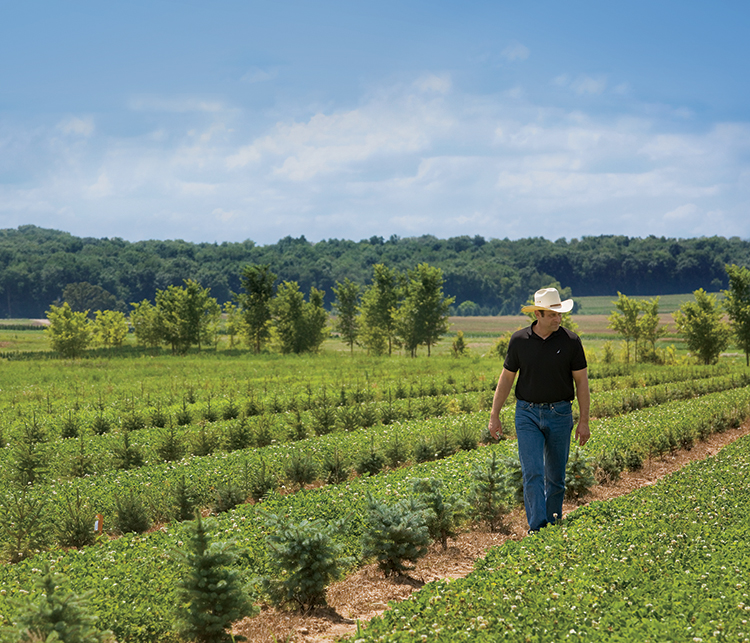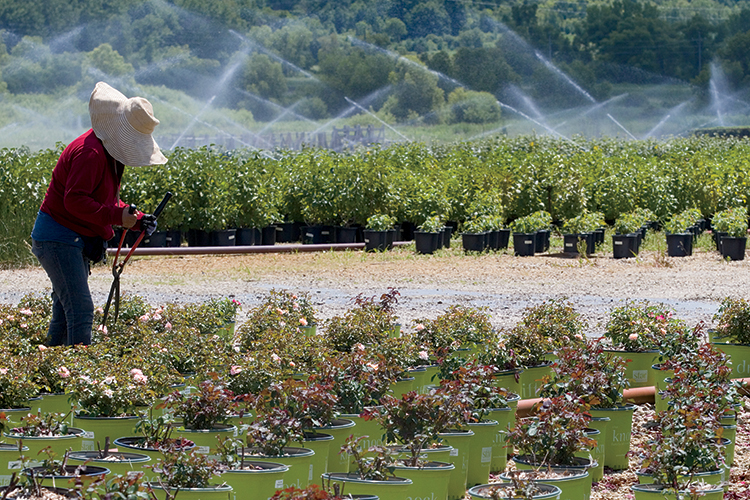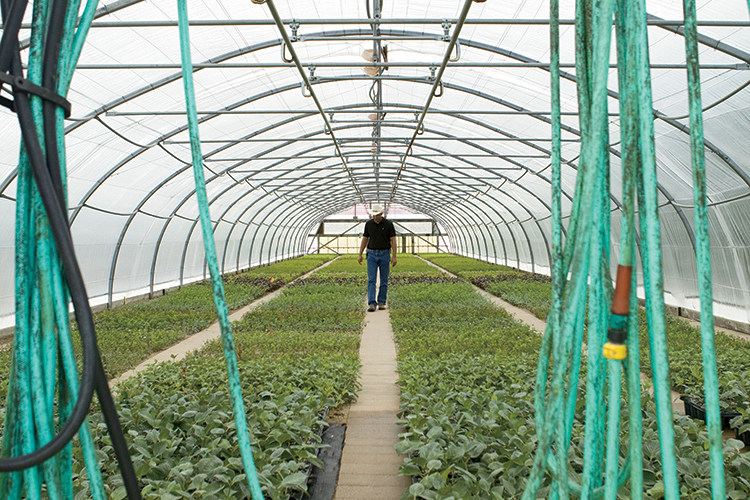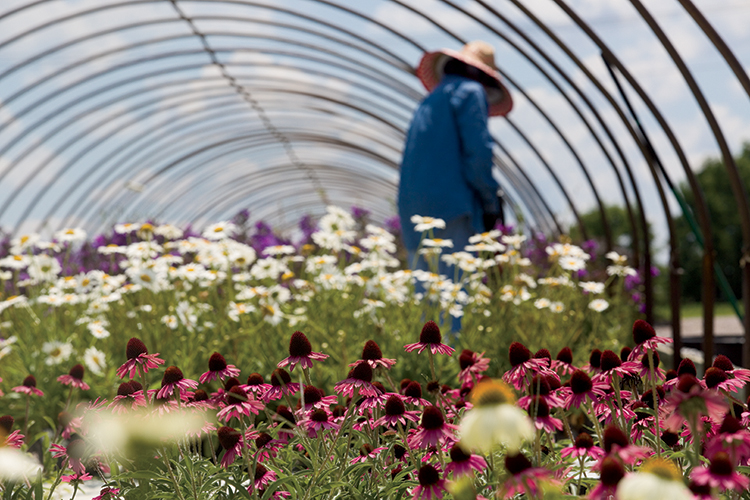Home > Wisconsin > Wisconsin Crops & Livestock > For the Love of Plants
For the Love of Plants
In partnership with: Wisconsin Department of Agriculture, Trade and Consumer Protection.

According to a survey done for the Wisconsin Nursery Association by the Wisconsin Agricultural Statistics Service in 2002, the economic impact of the state’s green industry is $2.7 billion. But many Wisconsinites would argue it’s the native flowers, trees, shrubs, evergreens, grasses, and the dedicated professionals behind the scenes that reflect the true value and beauty of the state’s green industry.
“We love to grow plants. That’s what we’re all about,” says Tom Buechel, who’s been in the industry for almost 20 years and is head of production at McKay Nursery Company based in Waterloo, Wis.

Established in 1897, McKay Nursery leads by example with sustainable practices for plant products grown on its 2,000-plus acres. This includes growing a range of native plants such as silky and gray dogwoods, eastern hemlock, and the popular aronia shrubs, also known as chokeberry. Using native plants in Wisconsin gardens and landscapes has become a growing trend among customers that preserves the past and protects the future by maintaining natural habitats and preventing soil erosion.
“It’s all about trying to find a balance, and the industry has made great strides at becoming better stewards of the land,” says Buechel. “We’re using cover crops to cushion the land, and we’ve seen great improvements in recycling water.”
For Buechel, it’s more than growing an excellent product; it’s understanding how that process affects the land that makes a difference.
Over the years, he has watched the industry face numerous challenges from adapting to online shopping to monitoring and preventing the spread of new insects and diseases.
“One of our best plants was autumn purple ash, and we no longer sell it, or any ash. It’s pretty detrimental.”

A New Approach To Certification
To better ensure plants are pest-free before they’re sold or shipped, Wisconsin’s Department of Agriculture, Trade and Consumer Protection (DATCP) has partnered with the National Plant Board to pilot a new program called SANC, or Systems Approach to Nursery Certification. McKay Nursery is a partner in the pilot program.
“To beat the pests, we have to do these things,” Buechel says. “SANC will help us look at all the procedures that affect the ways we ship plants.”
Through the program’s risk assessment protocol, growers can identify and control critical areas where pests are likely to be introduced.
Looking to the future, education and training will be key for nurseries to grow the most vigorous, healthy and pest-free stock available, and certifications like SANC may well become standard procedure throughout the industry.
“Continuous improvement has always been a focus at our company, so we’re ready for it. Likewise, I see Wisconsin’s nursery industry continuing to strive to keep plant quality high,” says Buechel.

Phytosanitary Certification: Another Safeguard
With quarantines issued in place across the state for gypsy moth, emerald ash borer and pine shoot beetle, most nurseries are well-versed in phytosanitary certification; however, they are also required for a variety of agricultural products, including lumber and grains.
“In order to obtain a phytosanitary certificate, the shipment must be free of certain insects and diseases that the importing country deems to be injurious,” says Bo DeLong, vice president of grain operations for The DeLong Company, which has been exporting grains overseas since the late 1980s. Whether the company is shipping to China, Indonesia or Mexico, DeLong says, these certificates are vital to ensure unwanted pests don’t enter the export channel.
DATCP’s efforts in setting records for certificates issued not only signals more products being sold and shipped, but also the reassuring fact that due diligence is being practiced across the state’s agriculture industry.



